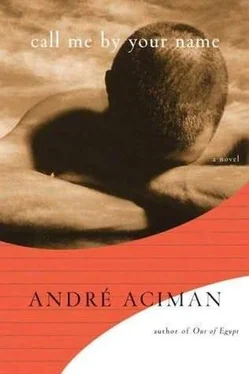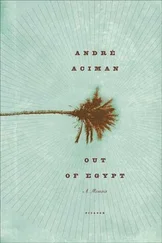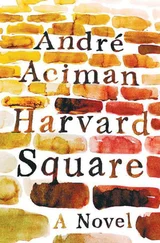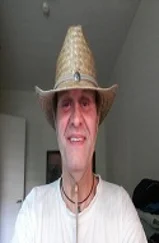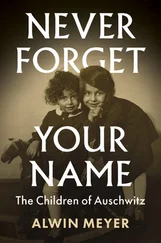André Aciman - Call Me by Your Name
Здесь есть возможность читать онлайн «André Aciman - Call Me by Your Name» весь текст электронной книги совершенно бесплатно (целиком полную версию без сокращений). В некоторых случаях можно слушать аудио, скачать через торрент в формате fb2 и присутствует краткое содержание. Год выпуска: 2007, Издательство: Farrar, Straus and Giroux, Жанр: Современная проза, на английском языке. Описание произведения, (предисловие) а так же отзывы посетителей доступны на портале библиотеки ЛибКат.
- Название:Call Me by Your Name
- Автор:
- Издательство:Farrar, Straus and Giroux
- Жанр:
- Год:2007
- ISBN:нет данных
- Рейтинг книги:5 / 5. Голосов: 6
-
Избранное:Добавить в избранное
- Отзывы:
-
Ваша оценка:
- 100
- 1
- 2
- 3
- 4
- 5
Call Me by Your Name: краткое содержание, описание и аннотация
Предлагаем к чтению аннотацию, описание, краткое содержание или предисловие (зависит от того, что написал сам автор книги «Call Me by Your Name»). Если вы не нашли необходимую информацию о книге — напишите в комментариях, мы постараемся отыскать её.
is clear-eyed, bare-knuckled, and ultimately unforgettable.
Call Me by Your Name — читать онлайн бесплатно полную книгу (весь текст) целиком
Ниже представлен текст книги, разбитый по страницам. Система сохранения места последней прочитанной страницы, позволяет с удобством читать онлайн бесплатно книгу «Call Me by Your Name», без необходимости каждый раз заново искать на чём Вы остановились. Поставьте закладку, и сможете в любой момент перейти на страницу, на которой закончили чтение.
Интервал:
Закладка:
When we arrived at the piazzetta overlooking the sea, Oliver stopped to buy cigarettes. He had started smoking Gauloises. I had never tried Gauloises and asked if I could. He took out a cerino from the box, cupped his hands very near my face, and lit my cigarette. “Not bad, right?” “Not bad at all.” They’d remind me of him, of this day, I thought, realizing that in less than a month he’d be totally gone, without a trace.
This was probably the first time I allowed myself to count down his remaining days in B.
“Just take a look at this,” he said as we ambled with our bikes in the midmorning sun toward the edge of the piazzetta overlooking the rolling hills below.
Farther out and way below was a magnificent view of the sea with scarcely a few stripes of foam streaking the bay like giant dolphins breaking the surf. A tiny bus was working its way uphill, while three uniformed bikers straggled behind it, obviously complaining of the fumes. “You do know who is said to have drowned near here,” he said.
“Shelley.”
“And do you know what his wife Mary and friends did when they found his body?”
“ Cor cordium , heart of hearts,” I replied, referring to the moment when a friend had seized Shelley’s heart before the flames had totally engulfed his swollen body as it was being cremated on the shore. Why was he quizzing me?
“Is there anything you don’t know?”
I looked at him. This was my moment. I could seize it or I could lose it, but either way I knew I would never live it down. Or I could gloat over his compliment — but live to regret everything else. This was probably the first time in my life that I spoke to an adult without planning some of what I was going to say. I was too nervous to plan anything.
“I know nothing, Oliver. Nothing, just nothing.”
“You know more than anyone around here.”
Why was he returning my near-tragic tone with bland ego-boosting?
“If you only knew how little I know about the things that really matter.”
I was treading water, trying neither to drown nor to swim to safety, just staying in place, because here was the truth — even if I couldn’t speak the truth, or even hint at it, yet I could swear it lay around us, the way we say of a necklace we’ve just lost while swimming: I know it’s down there somewhere. If he knew, if he only knew that I was giving him every chance to put two and two together and come up with a number bigger than infinity.
But if he understood, then he must have suspected, and if he suspected he would have been there himself, watching me from across a parallel lane with his steely, hostile, glass-eyed, trenchant, all-knowing gaze.
He must have hit on something, though God knows what. Perhaps he was trying not to seem taken aback.
“What things that matter?”
Was he being disingenuous?
“You know what things. By now you of all people should know.”
Silence.
“Why are you telling me all this?”
“Because I thought you should know.”
“Because you thought I should know.” He repeated my words slowly, trying to take in their full meaning, all the while sorting them out, playing for time by repeating the words. The iron, I knew, was burning hot.
“Because I want you to know,” I blurted out. “Because there is no one else I can say it to but you.”
There, I had said it.
Was I making any sense?
I was about to interrupt and sidetrack the conversation by saying something about the sea and the weather tomorrow and whether it might be a good idea to sail out to E. as my father kept promising this time every year.
But to his credit he didn’t let me loose.
“Do you know what you’re saying?”
This time I looked out to the sea and, with a vague and weary tone that was my last diversion, my last cover, my last getaway, said, “Yes, I know what I’m saying and you’re not mistaking any of it. I’m just not very good at speaking. But you’re welcome never to speak to me again.”
“Wait. Are you saying what I think you’re saying?”
“Ye-es.” Now that I had spilled the beans I could take on the laid-back, mildly exasperated air with which a felon, who’s surrendered to the police, confesses yet once more to yet one more police officer how he robbed the store.
“Wait for me here, I have to run upstairs and get some papers. Don’t go away.”
I looked at him with a confiding smile.
“You know very well I’m not going anywhere.”
If that’s not another admission, then what is? I thought.
As I waited, I took both our bikes and walked them toward the war memorial dedicated to the youth of the town who’d perished in the Battle of the Piave during the First World War. Every small town in Italy has a similar memorial. Two small buses had just stopped nearby and were unloading passengers — older women arriving from the adjoining villages to shop in town. Around the small piazza, the old folk, men mostly, sat on small, rickety, straw-backed chairs or on park benches wearing drab, old, dun-colored suits. I wondered how many people here still remembered the young men they’d lost on the Piave River. You’d have to be at least eighty years old today to have known them. And at least one hundred, if not more, to have been older than they were then. At one hundred, surely you learn to overcome loss and grief — or do they hound you till the bitter end? At one hundred, siblings forget, sons forget, loved ones forget, no one remembers anything, even the most devastated forget to remember. Mothers and fathers have long since died. Does anyone remember?
A thought raced through my mind: Would my descendants know what was spoken on this very piazzetta today? Would anyone? Or would it dissolve into thin air, as I found part of me wishing it would? Would they know how close to the brink their fate stood on this day on this piazzetta? The thought amused me and gave me the necessary distance to face the remainder of this day.
In thirty, forty years, I’ll come back here and think back on a conversation I knew I’d never forget, much as I might want to someday. I’d come here with my wife, my children, show them the sights, point to the bay, the local caffès, Le Danzing, the Grand Hotel. Then I’d stand here and ask the statue and the straw-backed chairs and shaky wooden tables to remind me of someone called Oliver.
When he returned, the first thing he blurted out was, “That idiot Milani mixed the pages and has to retype the whole thing. So I have nothing to work on this afternoon, which sets me back a whole day.”
It was his turn to look for excuses to dodge the subject. I could easily let him off the hook if he wanted. We could talk about the sea, the Piave, or fragments of Heraclitus, such as “Nature loves to hide” or “I went in search of myself.” And if not these, there was the trip to E. we’d been discussing for days now. There was also the chamber music ensemble due to arrive any day.
On our way we passed a shop where my mother always ordered flowers. As a child I liked to watch the large storefront window awash in a perpetual curtain of water which came sliding down ever so gently, giving the shop an enchanted, mysterious aura that reminded me of how in many films the screen would blur to announce that a flashback was about to occur.
“I wish I hadn’t spoken,” I finally said.
I knew as soon as I’d said it that I’d broken the exiguous spell between us.
“I’m going to pretend you never did.”
Well, that was an approach I’d never expected from a man who was so okay with the world. I’d never heard such a sentence used in our house.
“Does this mean we’re on speaking terms — but not really?”
He thought about it.
Читать дальшеИнтервал:
Закладка:
Похожие книги на «Call Me by Your Name»
Представляем Вашему вниманию похожие книги на «Call Me by Your Name» списком для выбора. Мы отобрали схожую по названию и смыслу литературу в надежде предоставить читателям больше вариантов отыскать новые, интересные, ещё непрочитанные произведения.
Обсуждение, отзывы о книге «Call Me by Your Name» и просто собственные мнения читателей. Оставьте ваши комментарии, напишите, что Вы думаете о произведении, его смысле или главных героях. Укажите что конкретно понравилось, а что нет, и почему Вы так считаете.
